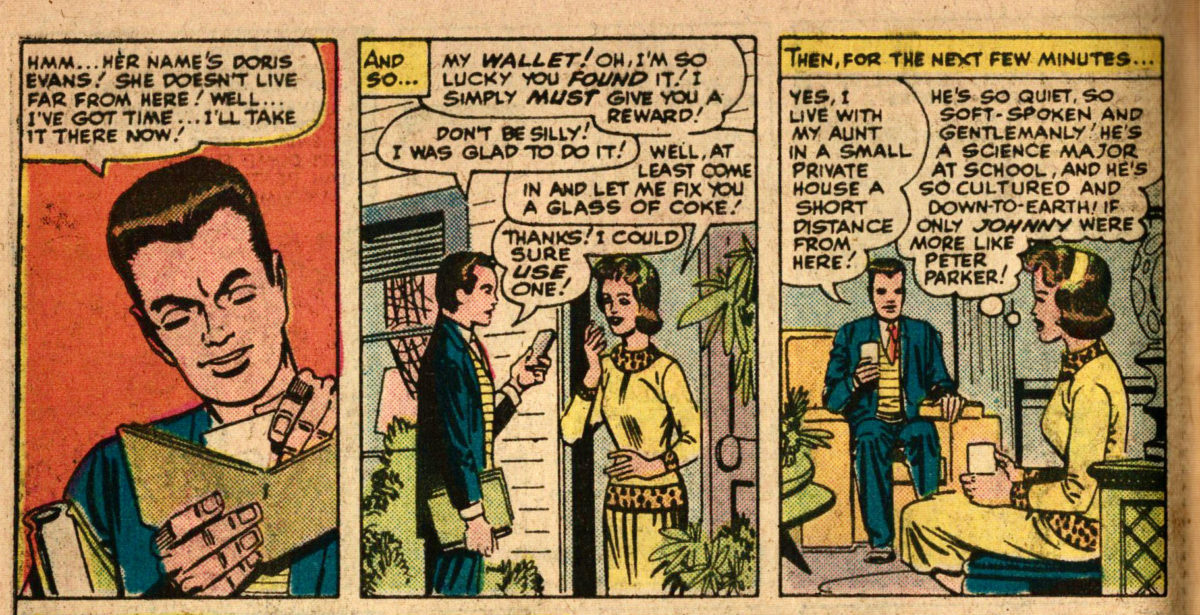Prisoner of the Slave World!
Featuring: Ant-Man
Release: December 3, 1962
Cover: March 1963
12 cents
Plot: Stan Lee
Script: L.D. Lieber
Art: Don Heck
10 pages

I read this story in Marvel Masterworks: Ant-Man/Giant-Man vol. 1.
This is a pretty momentous issue. We’ve read a variety of Marvel comics together here. We’ve taken peeks into the past and the future, and checked out some of Marvel’s “weird tales” books with tangential connections to our superhero comics. But we’ve mostly been reading superhero series of the early ’60s. We’ve followed the Fantastic Four, Hulk, Human Torch, Thor, and Ant-Man. What have all these series had in common? They’d all been drawn by Jack Kirby.

Now, for the first time, Jack is going to take a break from drawing several comics a month and draw one less. This issue of Ant-Man will be drawn by Don Heck. We’ve met Heck once before. He drew a Medusa story we checked out in Tales to Astonish. A great artist in his own right. He’d been associated with the company that will become Marvel off and on for almost a decade at this point, drawing westerns, war stories, and sci-fi/fantasy tales.
Continue reading “Tales to Astonish #41”
























